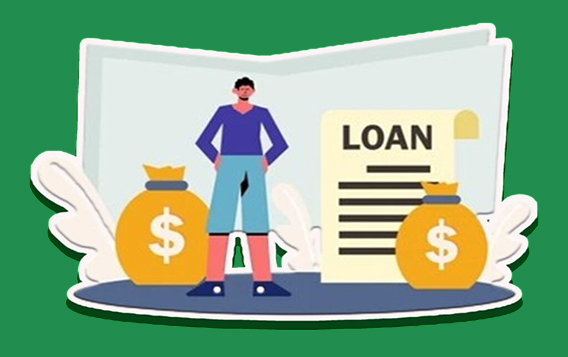There are other ways to pay for college including grants, student loans, and, in some cases, a personal loan. In addition, college tuition can be costly, and if resources are limited, personal loans may be necessary to cover educational expenses.

Many families think that the college fee is very expensive. In addition, the average annual tuition for full-time undergraduate students at four-year US universities is $14,700, including grants and scholarships, with $55,800 coming from nonprofit and private organizations. Furthermore, early exploration of alternative financing options for schooling may reduce the need for personal loans for expenses.
Can You Use a Personal Loan to Pay for College
Yes, you can use a personal loan to pay for college, but it’s probably not the wisest course of action. Personal loans are offered to borrowers for any cause, and some lenders may not question about the planned use of the funds. People are already borrowing money for their education through private and government student loans. Furthermore, it provides greater control over schooling expenses but may be declined by some lenders.
What Is a Personal Loan
Personal loans are unsecured, meaning they may be used for a variety of purposes and do not require collateral. A personal loan is a one-time payment that the borrower must repay over a predetermined time, at a preset interest rate. In addition, unlike credit cards, it has lower interest rates and needs fixed monthly payments over a certain period.
What Can a Personal Loan Be Used For
Personal loans serve various purposes, including consolidating debt, making home modifications, and covering one-time expenses like weddings or trips. The lender should inquire about any funds usage restrictions before using personal loan funds for postsecondary education. Most college students lack the necessary assets, income, or credit history to qualify for a large personal loan without a cosigner.
Why You Shouldn’t Use a Personal Loan to Pay for College
Both personal and student loans involve upfront borrowing and interest repayment over several years, but the similarities end there. The Higher Education Opportunity Act of 2008 sets stringent requirements that lenders must adhere to to grant loans to cover college tuition, to promote equity and openness.
Moreover, lenders cater to specific borrowers by offering student-specific loans instead of allowing them to be used for school expenses. Furthermore, consider your options when seeking a personal loan lender to cover additional education expenses.
What Can You Use a Personal Loan For in College
Personal loans are not allowed to cover college tuition, but they may be used for non-educational expenses. In theory, you might use a personal loan to pay for:
- Rent.
- Groceries.
- A personal laptop.
- Emergencies.
- Holidays.
Student loans can cover most expenses, such as accommodation, transportation, and personal items like textbooks. Before obtaining a personal loan, ensure that necessary expenses can be covered through a student loan. A personal loan often requires a steady credit history and consistent income.
In addition, make sure you have the funds necessary to make your monthly payments on schedule and avoid taking out loans, particularly if you have outstanding student loans. Also, make sure you’re borrowing within the lender’s permitted use limits by carefully reading the tiny print before signing a loan.
How College Students Can Get a Personal Loan
A comprehensive guide explains how to obtain a personal loan while attending college, making it surprisingly easy.
Verify your credit score
Getting approved for a personal loan is mostly reliant on your credit score. If you have a low score, you should consider improving it before applying.
Shop around
Compare the offers from many lenders to get the best terms and interest rates. Online lenders, credit unions, and banks are great places to start.
Arrange documentation
Identification, proof of income, and other financial data must be gathered for the document. Getting a co-signer for your loan application is something you should think about if you’re a college student with no credit history. Your chances of getting approved can increase if you do this.
Apply
Provide accurate information on the application form. For convenience, this may frequently be completed online. After that, you need to examine the terms and conditions of the loan thoroughly after approval before accepting the offer.
Final Thoughts
Personal loans are an important instrument for funding higher education since they cover educational expenses that are not normally covered by student loans. It may not be possible to pay for college entirely using personal loans, and even if it were, the long-term expenditures would likely be greater. Furthermore, prioritize school loans, grants, and scholarships, and consider a personal loan to bridge any financial shortfalls.

